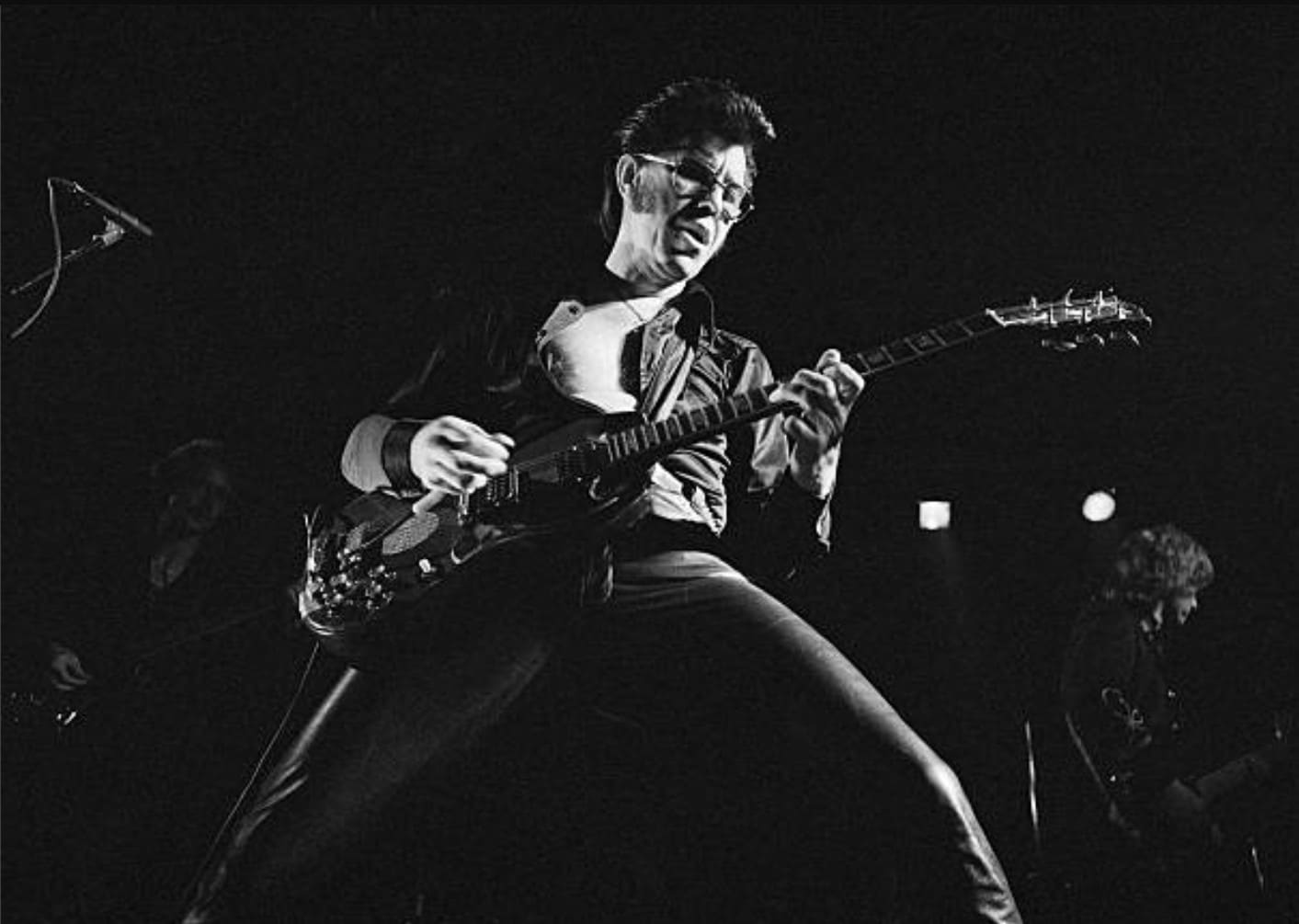Link Wray, dang it! Not before or since has a guitarist seduced six strings so desperately, wantonly, and without a note of remorse, deconstructing the electric guitar’s standard employment in 1958 when he emerged from the shadows fully armed and brandishing the seminal hit “Rumble”.
Though purely instrumental (it was conceived to take advantage of the”The Stroll” dance craze), “Rumble” was deemed too dangerous for radio and banned in major cities under the guise of preventing gang violence. Of course, that only initiated a legend that gored a ragged gash across six decades, allowing garage, punk, metal, grunge, and more to escape from Pandora’s jukebox.
But Wray was more than gnarly chords and shredded speakers– he was also an emotive singer and careful songwriter, a rock n’ roll sorcerer on stage or in the studio who hammered out his own black leather-jacketed way to inspire countless generations of artists.
Here are six Link Wray gems to rattle your cage– and maybe even strike your match.
1. “Raw-Hide” (1959)
Fred Lincoln Wray, Jr. was born on May 2nd, 1929 in Dunn, North Carolina. His parents were Shawnee, and the family grew up ridiculously poor in an ultra-dangerous South that forced them to hide their Native American heritage. In 1955, Link along with brothers “Lucky” Vernon and Doug formed a hillbilly band, eventually barnstorming out of the Washington D.C. area– and when rock n’ roll became the sound du jour, Lucky Wray & the Palomino Ranch Hands didn’t take much of a nudge to become Link Wray & the Ray Men. Fuzzy as a hung-over memory of the night before, you just know The Stooges scraped their knees to the amphetamine rush of “Raw-Hide”.
2. “Jack The Ripper” (1961)
One of Wray’s better-known songs (thanks to soundtracks & scenes like the throwdown in Robert Rodriguez’s ’95 pistol-whipper Desperado), “Jack The Ripper” is an epic in less than two and half minutes. My old band The Liabilities used to cover it (heck, we covered a lot o’ Link), and it’s still one of my favorites today. Smooth as that seventh shot o’ Jack Daniel’s.
3. “Blue Eyes (Don’t Run Away)” (1964)
Wray served his country in the United States Army during the Korean War, contracting tuberculosis in the process and ultimately losing a lung. Doctors told Link he’d never sing again. Well, he would, and while his skills behind a guitar are mythic, Wray’s frontman bonafides are as rough and rowdy as any hillbilly from Tupelo, Mississippi. Exhibit A hails from Link’s ’64 solo effort sans the Ray Men, a sometimes too-pop-for-its-own-good, teener-aimed platter that still manages to rise above– especially on this psycho’d croonfest layered with dissonance and potential domestic violence. Maybe Ricky Nelson could’ve made a sweet lover’s lament out of “Blue Eyes” but from between Wray’s teeth, it’s a full-moon thriller.
4. “Batman Theme” (1966)
I actually saw Link Wray perform LIVE about six months before his heart gave out on November 5, 2005– and if he played the “Batman Theme” once, he played it twenty times. It was his go-to move, his left jab, his top wrist lock out of a collar n’ elbow tie-up. He knew what you wanted– and you were damn sure gonna get it– but Link was gonna get his licks in on his own terms. It was a glorious show delivered through a typhoon-ish Fender Super Reverb– loud and crunchy like eating Alpha-Bits underwater– and it’s a memory even the dozen or so PBRs I downed that night haven’t dulled.
5. “Juke Box Mama” (1971)
Though I’d been a Link Wray fan since my pre-teens, I was in my late 20s (Oh, how did we exist without the Internet?) before I was even aware of his 1970s output. Indie before indie was hip, Link escaped to a farm in rural Maryland to set up shop solo in an old wooden “chicken shack” for this self-titled ’71 DIY masterpiece. This un’s full of rattlesnakes and nails, blasts of sticky, webby distortion, and hillbilly salvation. A simply killer cut, “Juke Box Mama” is a mean whiff of ultra-greasy, finger-lickin’ rock n’ roll for those that still care for it extra crispy.
6. “Rumble” (1974)
Link recut his signature many times over the years– and I love every single version. “Rumble” is the livin’ end of rock n’ roll, an alpha & omega tune, and while there a many, many that rank alongside it, I’ll declare unapologetically that there is none greater. I consider it my personal theme song– it intros my show Honky Tonk Hell; I walked down the aisle to it at my wedding; if I were a professional wrestler it would be my entrance music; I named my kid after Wray; and though I intend to be cremated when my physical time on earth ends, I want the operator to send me into the furnace to “Rumble” and you can scatter my remains to those chords. Amen.
Thee Aaron Irons is a music commentator and host of Honky Tonk Hell, a Rockabilly/Rhythm & Blues retrospective. He lives in Macon, Georgia with his wife and daughter. He once played “Rumble” on Duane Allman’s famed gold top Les Paul.
